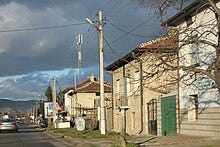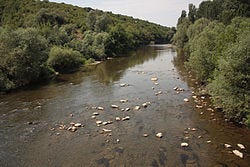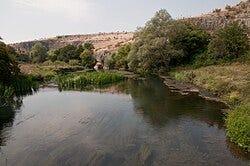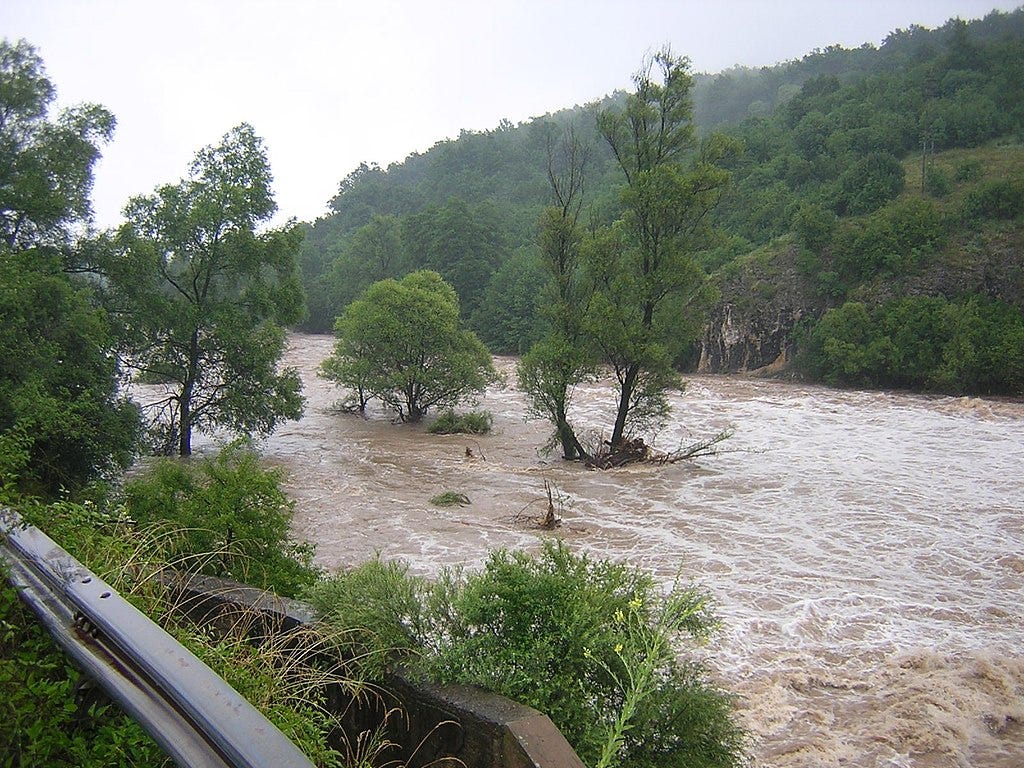Thracian Place Names
an etymological list
Hello to everyone and welcome to my new subscribers. I was apprehensive posting my personal story last week about cancel culture and its terrible effects, but now it’s time to talk about what really interests me: the Thracian language.
Most of my readers know about Wealthgiver, my upcoming novel in which a Russian army doctor flees from the aftermath of the Russo-Turkish war and stumbles into a cult of secret cave-Thracians. He falls in love and commands an army, but most importantly, he learns his in-laws’ language.
That was the fun part of writing the book. There are only tiny scraps remaining of Thracian, but that only made my challenge more delicious. You can read here about how I imagine myself like a paleontologist reconstructing a mighty carnivore from a tooth and toenail. You can read here one of my attempts to decipher a Thracian inscription. There are also personal names of historical Thracians, as well as a handful of glosses written by contemporaneous Greeks. I’ll get to them later, if I can. For now, let’s look at some place names.
(all pictures are from Wikipdia)
The Struma is one of Bulgaria’s big rivers (aside from the Danube, of course). It flows south through Greece, and it’s a good place to start with Thracian toponyms because its origin is so transparent. The ancient name of the river was Strūmṓn, which almost certainly comes from the Proto-Indo-European root *srew-, meaning “to flow.” “Struma” is a distant cousin to the English word “stream.”
It shouldn’t be surprising that Thracian and English share a family resemblance. Thracian was an Indo-European language, part of the same family as English, as well as Bulgarian, Greek, Latin, Hindi, French and many other languages spoken by the descendants of steppe horse-nomads who began invading Europe about five thousand years ago.
In this word, you can see a shift from *sr to str. That happened in Latin as well. Onward!
Dzherman is a village in western Bulgaria, and it has my favorite place name in the country. It means “hotsprings.” The root is *gʷʰerm- (with the same *-mṓn suffix as Strūmṓn) related to English “warm” and (originally Greek) “thermos.” The *gʷʰ sound that became English "<w> and Greek <th> in Thracian was palatalized by the following <e> and became <dzh>, the same as the first sound in “jungle.” This is very interesting, because Albanian does exactly the same thing. Albanian zjarm “fire” evolved from *dźerma.
The Osam is a river in northern Bulgaria, with the Classical names ásēmous and asámus and later Osmos. It has a pretty well-established etymology from Proto-Indo-European *h₂éḱ-e-mus, meaning “Stony” (see Greek ákmōn “an anvil” Bulgarian kamak “a stone” and possibly English “heaven.”)
This name was helpful to me in several ways. First, see how the <k> in Greek is a <s> in Thracian? That means Thracian was a “satem” language, participating in a sound shift that spread from Central Asia into the ancestors of the Baltic and Slavic language families in Europe, and the Indo-Aryan languages in the Middle East and South Asia. Importantly, Albanian is also a satem language, although Greek is not.
Zlatna Panega is a river I’ve actually been to. It’s often a strange milky color because of the dissolved limestone in it. Zlatna is Bulgarian and means “golden” but Panega is Thracian comes from a root meaning “to drink.” Its ancient name was Panaka. Possibly *pan-ya-ka meant “the drink.” The interesting sound shift here is Proto-Indo-European <o> (pon-yo-ka) to Thracian <a>. That shift is shared by Albanian, Balto-Slavic, and Indo-Aryan.
Plovdiv is a beautiful city with great coffee and an interesting name. In classical times it was named Phillipoplis after Philip of Macedon (the father of Alexander the Great), but later Roman sources record its name as Pulpudeva. What happened was the local Thracian people translated the city’s name: Pylypo-deva. Deva (also spelled <déba>, <dava>, <daba> and <deouē> meant “city,” from the PIE *dʰeh₁- meaning “to do” or “to put.” In fact it is related to the English word “do”.
Plovdiv’s name has been recorded in various intermediate stages: Pulpudeva, Plapdiv, Plodiv > Plóvdiv. Here you can see vowel deletion and metathesis, when pulpu- becomes plap-. There’s also something interesting going on when the second <p> comes into contact with the <d>; it becomes <v>. The other <v> at the end of the word has a different origin. The original word was probably *déwa, as you can see from the <b> <v> and <ou> used by Greek scribes in an attempt to symbolize this foreign sound. At some point, w > v.
Debelt is a village in Eastern Bulgaria with a very frustrating name. It probably has the same root as “Plovdiv"“; *dew-e-l-tos, possibly meaning “the little town.” By why isn’t it **Divelt? Its ancient names are numerous but confusing: deoueltós, dēbeltós, develtós, dibēltós, Dibaltum, Debeltum, Develton, Deultum.
I wrestled with this one for a long time, but I finally cracked it with the help of Vladimir Orel’s A Concise Historical Grammar of the Albanian Language. In it, he theorizes a Proto-Albanian sound shift from ē to o, perhaps through an intermediate *we. A hypothetical *dwevwelta might indeed give us “Debelt,” but I could be wrong.
Another word I could be wrong about. The river Vit might be from the Thracian word for “wade.” The PIE root was *wehdʰ- > *uh₂dʰ and the ancient names of the river were Utus, Utos, and Uthis. Here’s another example of an Albanian-like shift in the initial <u> to <vi>.
That’s all for now. Next, I’ll show you the glosses and the few precious Thracian words that have been preserved in the Bulgarian language (there are two). Then, the real fun will start. When I began this project, I set myself the task of noting the sound changes between a given Thracian word and its Proto-Indo-European root, then applying those changes to other roots to generate new, pseudo-Thracian vocabulary. Five years later, I am almost ready to start generating. Stay tuned.







